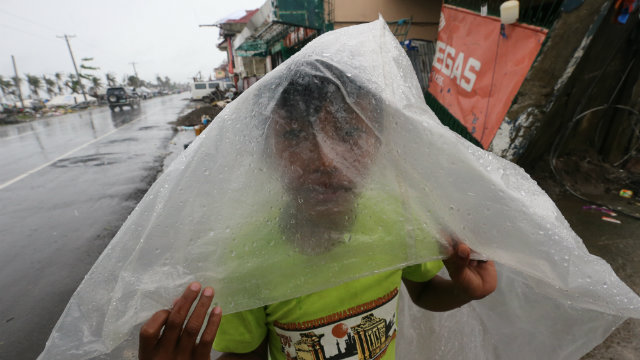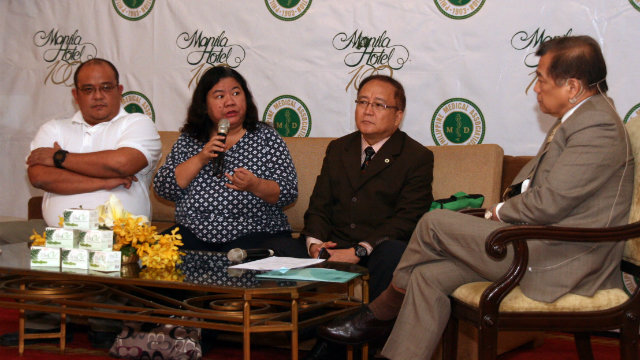SUMMARY
This is AI generated summarization, which may have errors. For context, always refer to the full article.

MANILA, Philippines – Labor and sex traffickers in calamity areas should receive stiffer penalties according to child and women’s advocate Susan Ople, president of Blas Ople Policy center.
Speaking on Tuesday, January 28 at the Philippine Medical Association’s (PMA) weekly Kapihan Forum at the Manila Hotel, Ople said that they have received anecdotal reports that children and women from Tacloban are being trafficked to various nightclubs in Quezon City. This suggest that the threat of child and human trafficking is increasing in areas affected by Typhoon Yolanda. (Read why human trafficking is a worry in post-Yolanda areas.)
Alarmed by these reports, Ople is planning to collaborate with the PMA on two aspects: to lobby for a targeted response for cases of human trafficking in calamity areas, and; to introduce a healing program for victims of human trafficking.
“We would like to lobby for an amendment to the Migrant Workers Act or Republic Act no. 8042 so that if you are an illegal recruiter operating in calamity areas, you get the full brunt of the law,” Ople said.

Ople wants labor and sex trafficking in disaster areas to be considered a non-bailable offense with convicted recruiters automatically given life-imprisonment. Under the existng law, the minimum penalty for labor and sex trafficking offenders is imprisonment of 6 years and a fine of P200,000 while the maximum penalty is life imprisonment.
Ople also pointed out that efforts to investigate, prosecute and convict human trafficking offenders should also be increased. “We observed that there is hardly programs for victims that bear invisible, mental and emotional scars and wounds, a burden that they carry for the rest of their lives,” Ople said.
According to the 2013 Trafficking in Persons (TIP) report of the US State Department, the Philippines is categorized under Tier 2 – or a country who “do not fully comply with the Trafficking Victims Protection Act minimum standards, but are making significant efforts to bring themselves into compliance with those standards.”
The 3-tier system ranks countries according to their compliance with global standards to combat human trafficking. The Philippines has been categorized under Tier 2 since 2011 and under Tier 2-watchlist in 2004, 2005, 2009 and 2010. In order to get to the top Tier 1, the country needs to show significant improvement in curbing human trafficking.
Ople said that unless LGUs in typhoon-stricken areas strengthen their safeguards for preventing human trafficking, illegal recruiters and trafficking syndicates will thrive.
“Dapat walang pwede mag-recruit sa mga calamity areas kung walang permit from the office of the Mayor,” Ople added. (Recruiters should not be allowed to roam around calamity areas in the absence of the permit from the Mayor’s office)
According to Ople, the government has already formed Task Force Yolanda under the government’s Inter-Agency Council Against Trafficking (IACAT). The group is tasked to develop plans on prevention and protection in areas devastated by the typhoon.
IACAT statistics also show that while human trafficking convictions increased in the Philippines in the past few years, the numbers remained ‘few and concentrated’. (READ: Gradual justice: human trafficking convictions over the years) – Rappler.com
Add a comment
How does this make you feel?
There are no comments yet. Add your comment to start the conversation.